Following the launch of EducationWorld in 1999 with the objective of “building the pressure of public opinion to make education the #1 item on the national agenda”, even if belatedly, private sector education providers, NGOs and idealistic citizens countrywide are exhibiting enthusiasm for promoting progressive education institutions, improving teaching-learning standards and measuring learning outcomes – Summiya Yasmeen
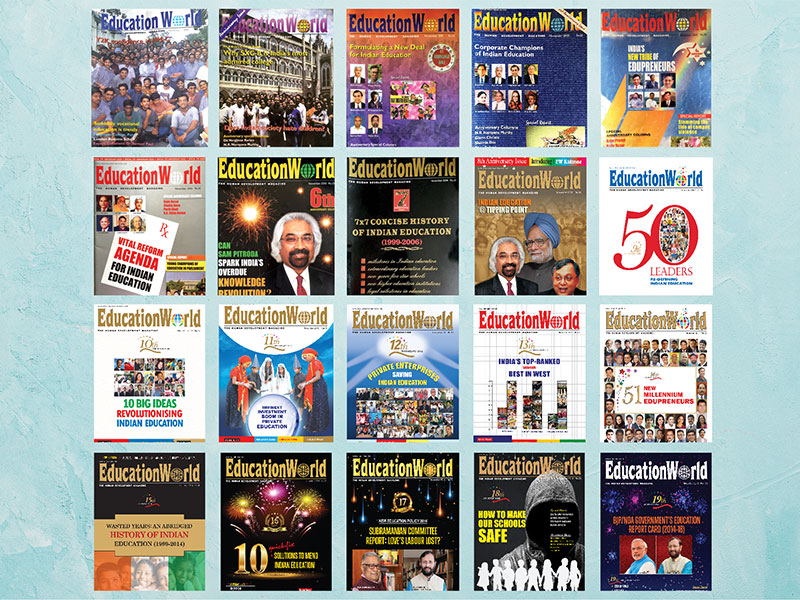 Twenty years after EducationWorld was launched on November 1, 1999 with the ambitious objective to “build the pressure of public opinion to make education the #1 item on the national agenda,” it’s time for an impact assessment.
Twenty years after EducationWorld was launched on November 1, 1999 with the ambitious objective to “build the pressure of public opinion to make education the #1 item on the national agenda,” it’s time for an impact assessment.
Quite clearly, one can’t proclaim mission accomplished, not by a long chalk. But although education is not yet the premier national priority, there’s no denying this project has steadily inched up the socio-economic development agendas of the Central and state governments. After decades of neglect during which India has attained the dubious distinction of hosting the world’s largest number of illiterates, continuously plunging learning outcomes in primary education, globally uncompetitive universities and lowest workplace productivity worldwide, the silver lining is that private sector education providers, NGOs and idealistic citizens countrywide have seen the light and are exhibiting enthusiasm for promoting progressive education institutions, improving teaching-learning standards and measuring learning outcomes. Across the country, in seminars and workshops, there’s unprecedented interest in breakaway pedagogies and radical education reform.
It would be presumptuous for your editors to take the credit for the phenomenon of rising awareness of the critical importance of quality education for all within the establishment and the public. Across the subcontinent, thousands of voluntary services groups (NGOs), dedicated educationists, philanthropists, teachers and edupreneurs are working unsung and often in the teeth of opposition from interfering government bureaucrats to raise teaching-learning standards in the country’s schools, colleges and universities to global norms. EducationWorld’s contribution is that for the past 20 years, we have told their stories and projected them as inspiring models whose initiatives are worthy of replication.
Coterminously, we have achieved some success in impacting the critical importance of early childhood care and education upon the national consciousness; publicising the importance of measuring student learning outcomes and inspiring education institutions to strive for continuous improvement through our field-based pioneer preschools, schools and higher education ranking surveys, conferences and awards for best performing institutions, among other initiatives. Yet on the other hand, our persistent advocacy of government expenditure (Centre plus states) being raised from the current 3-3.25 percent to 6 percent of GDP as recommended by the Kothari Commission (1966), T.S.R. Subramanian Committee (2016) and the Kasturirangan Committee (2019), has been a rank failure.
In the table set out below, we provide an honest assessment of an internal jury on the socio-economic impact made by EducationWorld through our editorial and other initiatives.
EW internal jury assessment
Objectives/Rating metrics
To make education the #1 item on the national agenda” **
• Propagating vital importance of professionally administered early childhood care and education ***
• Popularising measurement of students’ learning outcomes ***
• Liberalisation of education advocacy **
• Vocational training and skills education propagation **
• Autonomy of higher education institutions **
• Financial autonomy for private schools **
• English in K-12 education advocacy **
• Defending budget private schools **
• Credible preschool, school and university rankings ****
• Increased government expenditure advocacy *
EW Impact: Expert opinion
 My heartiest congratulations to EducationWorld. At a time when the education landscape is witnessing fast-paced changes and offers new opportunities and challenges, through informative features and essays with insightful perspectives, EW has always been at the forefront of highlighting various facets of education. I wish EducationWorld the very best in all its future endeavours as it steps into the third decade of serving the education community — Nita M. Ambani, founder & chairperson, Dhirubhai Ambani International School, Mumbai
My heartiest congratulations to EducationWorld. At a time when the education landscape is witnessing fast-paced changes and offers new opportunities and challenges, through informative features and essays with insightful perspectives, EW has always been at the forefront of highlighting various facets of education. I wish EducationWorld the very best in all its future endeavours as it steps into the third decade of serving the education community — Nita M. Ambani, founder & chairperson, Dhirubhai Ambani International School, Mumbai
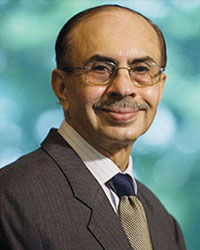 EducationWorld is the country’s foremost education publication. For India to become a developed nation in a short time period, provision of high-quality education is crucial, and EducationWorld has played a big role towards achieving this endeavour — Adi Godrej, chairman, Godrej Group, Mumbai
EducationWorld is the country’s foremost education publication. For India to become a developed nation in a short time period, provision of high-quality education is crucial, and EducationWorld has played a big role towards achieving this endeavour — Adi Godrej, chairman, Godrej Group, Mumbai
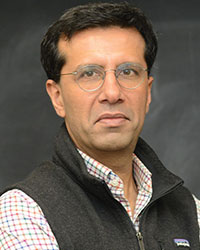 EducationWorld has shown a deep commitment to education over the past two decades. It is the only publication that comprehensively covers all dimensions of the education sector. EW provides the most robust ranking of schools and has therefore been a force for improvement within K-12 education — Ashish Dhawan, founder, Central Square Foundation, Delhi
EducationWorld has shown a deep commitment to education over the past two decades. It is the only publication that comprehensively covers all dimensions of the education sector. EW provides the most robust ranking of schools and has therefore been a force for improvement within K-12 education — Ashish Dhawan, founder, Central Square Foundation, Delhi
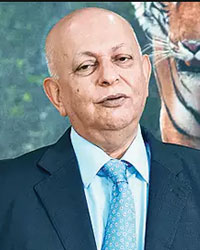 Over the past two decades EducationWorld has strongly advocated reform of the public education system, brought in international comparatives to India and has focussed on research-based school rankings. It has brought to the forefront the diversity and challenges of the Indian education system and the lack of infrastructure in a big way which has been a barrier to the economic progress of the country — Hemendra Kothari, chairman, DPS Investment Managers, Mumbai
Over the past two decades EducationWorld has strongly advocated reform of the public education system, brought in international comparatives to India and has focussed on research-based school rankings. It has brought to the forefront the diversity and challenges of the Indian education system and the lack of infrastructure in a big way which has been a barrier to the economic progress of the country — Hemendra Kothari, chairman, DPS Investment Managers, Mumbai
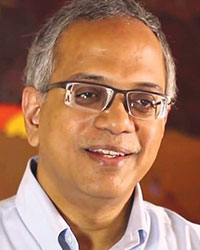 Over the past two decades, EducationWorld has demonstrated steadfast leadership in the education sector, often ploughing a lonely furrow. Its fearless, critical and constructive editorial stance, and its fierce defence of high quality, socially-committed education entrepreneurship, have significantly contributed to transforming the education sector, especially K-12 education — Anand Sudarshan, founder-director, Sylvant Advisors Pvt. Ltd, Bangalore
Over the past two decades, EducationWorld has demonstrated steadfast leadership in the education sector, often ploughing a lonely furrow. Its fearless, critical and constructive editorial stance, and its fierce defence of high quality, socially-committed education entrepreneurship, have significantly contributed to transforming the education sector, especially K-12 education — Anand Sudarshan, founder-director, Sylvant Advisors Pvt. Ltd, Bangalore
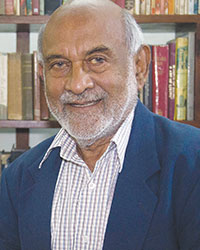 EducationWorld is a powerhouse of the education sector. Ever since it began ranking schools measured against several parameters of education excellence, it has become a guide for educators, administrators and parents. Schools that are judged as the best strive to retain their position while others strive to attain higher positions. This has had a direct bearing on improving the quality of education across the country — Shomie Das, former headmaster, The Doon School, Dehradun, Mayo College, Ajmer and Lawrence School, Sanawar
EducationWorld is a powerhouse of the education sector. Ever since it began ranking schools measured against several parameters of education excellence, it has become a guide for educators, administrators and parents. Schools that are judged as the best strive to retain their position while others strive to attain higher positions. This has had a direct bearing on improving the quality of education across the country — Shomie Das, former headmaster, The Doon School, Dehradun, Mayo College, Ajmer and Lawrence School, Sanawar
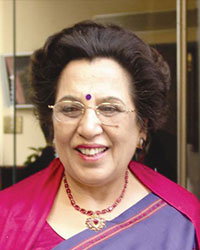 EducationWorld has united all stakeholders in Indian education. It is the sole publication which credibly assesses preschool to higher education institutions on several parameters of education excellence. This has prompted education institutions countrywide to strive to improve delivery of holistic education. A bold, honest, frank, sincere and truthful publication — Dr. Shayama Chona, former principal, DPS, RK Puram, Delhi
EducationWorld has united all stakeholders in Indian education. It is the sole publication which credibly assesses preschool to higher education institutions on several parameters of education excellence. This has prompted education institutions countrywide to strive to improve delivery of holistic education. A bold, honest, frank, sincere and truthful publication — Dr. Shayama Chona, former principal, DPS, RK Puram, Delhi
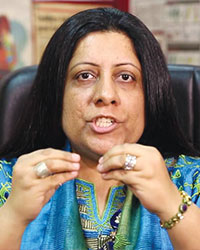 The impact of EducationWorld is huge, mammoth and massive. Over the past 20 years if any positive changes have happened in education, it’s because EW has raised them editorially, debated them in conferences and constantly badgered the government and education stakeholders. Also on behalf of the Early Childhood Association I’d like to thank EducationWorld for leveraging our work, at a time when we were struggling to be heard and seen — Dr. swati Popat Vats, founder-president, Early Childhood Association of India and president, Podar Jumbo Kids, Mumbai
The impact of EducationWorld is huge, mammoth and massive. Over the past 20 years if any positive changes have happened in education, it’s because EW has raised them editorially, debated them in conferences and constantly badgered the government and education stakeholders. Also on behalf of the Early Childhood Association I’d like to thank EducationWorld for leveraging our work, at a time when we were struggling to be heard and seen — Dr. swati Popat Vats, founder-president, Early Childhood Association of India and president, Podar Jumbo Kids, Mumbai
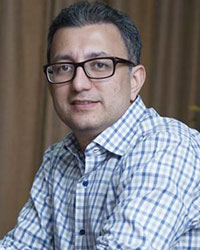 Over the years, EW has engaged readers with incisive articles, features, interviews, analysis and editorials, highlighting the Indian education sector’s growth and development, its deficiencies and gaps and the imperative need for reforms and structural changes, to become more contemporary and relevant. Above all, it has served as a vibrant and stimulating discussion forum, bringing together academicians, educationists, industry leaders and the government onto a common platform — Dr. Ranjan Pai, chairman, Manipal Education & Medical Group, Bangalore
Over the years, EW has engaged readers with incisive articles, features, interviews, analysis and editorials, highlighting the Indian education sector’s growth and development, its deficiencies and gaps and the imperative need for reforms and structural changes, to become more contemporary and relevant. Above all, it has served as a vibrant and stimulating discussion forum, bringing together academicians, educationists, industry leaders and the government onto a common platform — Dr. Ranjan Pai, chairman, Manipal Education & Medical Group, Bangalore
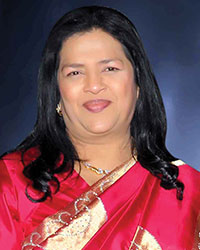 The community of educators looks up to EducationWorld as its voice. Moreover, the EducationWorld India School Rankings Awards has become a much-awaited event that gives a national platform and recognition to schools across the country. May God bless all your efforts — Grace Pinto, managing director, Ryan International Group of Institutions, Mumbai
The community of educators looks up to EducationWorld as its voice. Moreover, the EducationWorld India School Rankings Awards has become a much-awaited event that gives a national platform and recognition to schools across the country. May God bless all your efforts — Grace Pinto, managing director, Ryan International Group of Institutions, Mumbai
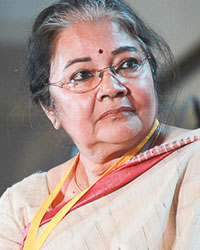 My greatest admiration for EW is for the role it has played in disseminating education-related information, generating creative, thought-provoking debates and discussions in academia as well as within the general public. Most importantly, I value EW for relentlessly pushing “to make education the #1 item on the national agenda” and for making people understand that education is the most effective instrument for uniting the world — Devi Kar, director, Modern High School for Girls, Kolkata
My greatest admiration for EW is for the role it has played in disseminating education-related information, generating creative, thought-provoking debates and discussions in academia as well as within the general public. Most importantly, I value EW for relentlessly pushing “to make education the #1 item on the national agenda” and for making people understand that education is the most effective instrument for uniting the world — Devi Kar, director, Modern High School for Girls, Kolkata
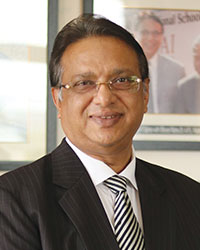 EducationWorld has made a significant contribution towards enhancing the quality of K-12 education in India. It has helped educationists augment their lateral thinking capabilities, familiarise themselves with 21st century competencies and encouraged them to share and implement best education practices — Dr. Bijaya Sahoo, chairman, SAI International School, Bhubaneswar
EducationWorld has made a significant contribution towards enhancing the quality of K-12 education in India. It has helped educationists augment their lateral thinking capabilities, familiarise themselves with 21st century competencies and encouraged them to share and implement best education practices — Dr. Bijaya Sahoo, chairman, SAI International School, Bhubaneswar
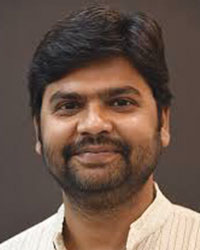 EducationWorld is not just a niche magazine. It has rendered commendable social service by bringing the education fraternity together — Amit Chandra, Policy Fellow, Centre for Civil Society, Delhi
EducationWorld is not just a niche magazine. It has rendered commendable social service by bringing the education fraternity together — Amit Chandra, Policy Fellow, Centre for Civil Society, Delhi
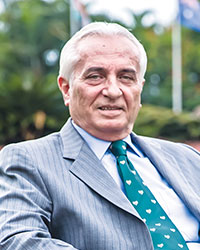 EducationWorld is the only education publication that is topical and a reporter of the challenges confronting K-12 education. I recommend this magazine to all decision makers in government and industry — Lt. Gen (Retd.) Arjun Ray, CEO, Indus Trust, Bangalore
EducationWorld is the only education publication that is topical and a reporter of the challenges confronting K-12 education. I recommend this magazine to all decision makers in government and industry — Lt. Gen (Retd.) Arjun Ray, CEO, Indus Trust, Bangalore
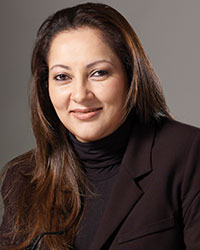 Of all the awards I have received, the two I hold closest to my heart are the Australian Alumni Award and the Lifetime Achievement Award of EducationWorld. EW continues to encourage and motivate individuals to invest time and money in education. Its contribution to the expansion of quality education in India is immeasurable — Lina Ashar, founder, Kangaroo Kids and Billabong High International Schools, Mumbai
Of all the awards I have received, the two I hold closest to my heart are the Australian Alumni Award and the Lifetime Achievement Award of EducationWorld. EW continues to encourage and motivate individuals to invest time and money in education. Its contribution to the expansion of quality education in India is immeasurable — Lina Ashar, founder, Kangaroo Kids and Billabong High International Schools, Mumbai
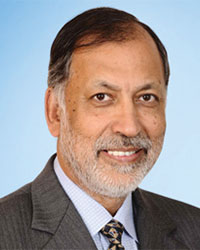 EducationWorld has established itself as a credible source for making informed decisions relating to academics, and has built immense goodwill within the educators community — Rajendra S. Pawar, chairman & co-founder, NIIT Ltd. & founder, NIIT University, Delhi
EducationWorld has established itself as a credible source for making informed decisions relating to academics, and has built immense goodwill within the educators community — Rajendra S. Pawar, chairman & co-founder, NIIT Ltd. & founder, NIIT University, Delhi
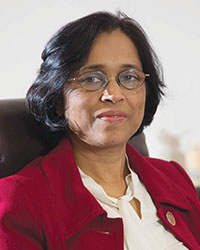 With clarity and evidence-based journalism, EW has rallied the private schools community and united it, and through its annual school rankings survey, it has defined and expanded quality school education — Prof. Geeta Kingdon, chair of education economics and international development at the Institute of Education, University College London
With clarity and evidence-based journalism, EW has rallied the private schools community and united it, and through its annual school rankings survey, it has defined and expanded quality school education — Prof. Geeta Kingdon, chair of education economics and international development at the Institute of Education, University College London
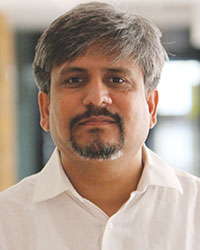 The magnitude of EW’s role in Indian education is inestimable. For school teachers, college faculty, principals and edupreneurs, the magazine is a treasure house of information — Dhirendra Mishra, founder, LIFE Educare Consultants Pvt. Ltd, Bangalore
The magnitude of EW’s role in Indian education is inestimable. For school teachers, college faculty, principals and edupreneurs, the magazine is a treasure house of information — Dhirendra Mishra, founder, LIFE Educare Consultants Pvt. Ltd, Bangalore
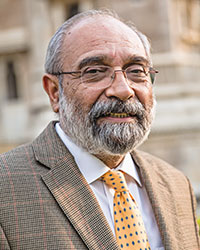 EducationWorld has rendered a great service to school education over the past 20 years. In particular the annual EW school rankings which rank schools on 14 parameters, has transformed the country’s best schools from academic into education institutions. Now there is great motivation and aspiration for schools to improve on all parameters of education excellence — Dr. Sumer Singh, former headmaster, The Lawrence School, Sanawar & Daly College, Indore
EducationWorld has rendered a great service to school education over the past 20 years. In particular the annual EW school rankings which rank schools on 14 parameters, has transformed the country’s best schools from academic into education institutions. Now there is great motivation and aspiration for schools to improve on all parameters of education excellence — Dr. Sumer Singh, former headmaster, The Lawrence School, Sanawar & Daly College, Indore























